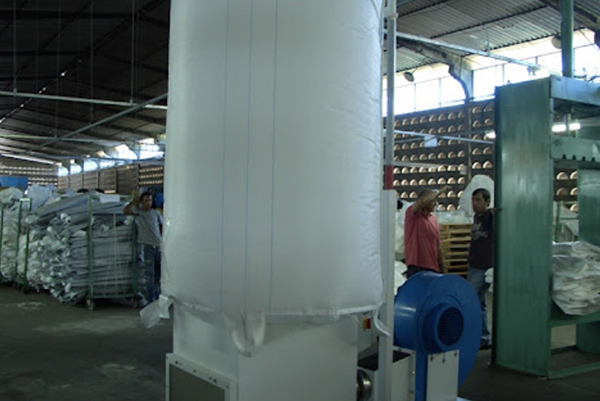As the world gravitates towards sustainability, the environmental impact of industrial practices is under increasing scrutiny. The cleaning of Flexible Intermediate Bulk Containers (FIBCs), commonly known as bulk bags or jumbo bags, is a crucial process in industries that rely on these containers for transporting large quantities of materials. The focus is now on how FIBC cleaning practices affect the environment and what advancements are being made to mitigate negative impacts.
Importance of FIBC Cleaning
FIBCs are widely used in industries such as agriculture, chemicals, pharmaceuticals, and construction. These bags are designed to be reusable, but to maintain their integrity and prevent contamination, they must be thoroughly cleaned after each use. Effective cleaning ensures that residues from previous contents do not mix with new materials, which is especially critical in food and pharmaceutical industries where contamination can have serious consequences.
Traditional Cleaning Methods and Their Impact
Traditional FIBC cleaning methods often involve manual cleaning or basic automated systems that use significant amounts of water and chemicals. These methods pose several environmental challenges:
- Water Consumption: The large quantities of water required for cleaning FIBCs can strain local water resources, especially in areas facing water scarcity.
- Chemical Use: Cleaning agents used to remove stubborn residues can be harmful to the environment. If not managed properly, these chemicals can enter water systems, leading to pollution and adverse effects on aquatic life.
- Energy Use: Traditional cleaning methods can be energy-intensive, contributing to higher carbon emissions.
Innovations in FIBC Cleaning Technologies
Recent advancements in FIBC cleaner technologies aim to address these environmental concerns. Modern FIBC cleaning machines incorporate several innovative features:
- Water-Efficient Systems: Newer machines are designed to use water more efficiently, often recycling water within the system to minimize waste. This approach not only conserves water but also reduces the operational costs associated with water usage.
- Eco-Friendly Cleaning Agents: Manufacturers are increasingly using biodegradable and non-toxic cleaning agents. These alternatives are effective in removing residues while being less harmful to the environment.
- Automated Cleaning Processes: Automation enhances precision in cleaning, ensuring thorough decontamination with minimal waste. Automated systems can be programmed to use the exact amount of water and cleaning agents needed, reducing excess usage.
- Energy-Efficient Designs: Modern FIBC cleaners are designed to be more energy-efficient, utilizing advanced technologies that reduce power consumption. This not only lowers operational costs but also helps in reducing the carbon footprint of the cleaning process.
Case Study: VYT Machinery’s FIBC Cleaner
A notable example of these innovations is the FIBC cleaning machines developed by VYT Machinery. Their machines feature automatic knocking devices and beat arms that effectively remove residues from inside the bags. The process is highly efficient, reducing the need for excessive water and cleaning agents. Additionally, their systems are designed to be energy-efficient, aligning with global sustainability goals.
Environmental Benefits
The environmental benefits of adopting advanced FIBC cleaning technologies are substantial:
- Reduced Water Usage: Efficient water management systems significantly lower the amount of water required for cleaning, conserving valuable water resources.
- Lower Chemical Pollution: The use of eco-friendly cleaning agents reduces the risk of chemical pollution, protecting local ecosystems and water sources.
- Energy Conservation: Energy-efficient machines contribute to lower greenhouse gas emissions, supporting efforts to combat climate change.
- Extended FIBC Lifespan: Proper and efficient cleaning extends the lifespan of FIBCs, reducing the need for new bags and minimizing waste.
Conclusion
As industries worldwide continue to embrace sustainable practices, the role of advanced FIBC cleaner technologies cannot be overstated. By reducing water and chemical usage and improving energy efficiency, these innovations not only enhance the cleaning process but also significantly lessen the environmental impact. Companies that adopt these technologies demonstrate a commitment to sustainability, ensuring that their operations contribute positively to the environment. The future of FIBC cleaning lies in continuous improvement and the integration of eco-friendly practices, paving the way for a greener, more sustainable industrial landscape.
Post time: Jul-25-2024


